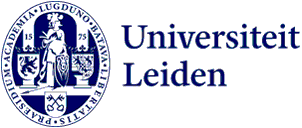Introducing: Kamila Smagulova
Kamila Smagulova recently joined the Institute for History as a PhD candidate, as part of Carolien Stolte's ERC project 'Reconciling Peace: International Coalitions for Peace in the Era of Decolonization, 1918-1970'. The project runs alongside Carolien Stolte's VIDI project 'Peace Palms. International Coalitions for Peace in the Era of Decolonization, 1918-1970'. Kamila works together with Pratika Dewi, Floris de Ruiter and Henrike Vellinga. Below she introduces herself.

My name is Kamila Smagulova. This year I was privileged to join the Institute for History at Leiden University as a PhD researcher for the project on Peace Movements and Decolonization, supervised by Professor Carolien Stolte.
My academic journey was quite chaotic over the past years, combined with working in an independent NGO in Kazakhstan, as well as working with civil society. I have originally graduated with a BA in political science and international relations from Nazarbayev University. Later I studied Public Policy there, at a Graduate School of Public Policy, joint program with LKY School of Public Policy at University of Singapore.
I started my career working in an independent think tank and NGO called Paperlab, based in Astana, Kazakhstan. I have spent three years working there. My research interests have then lied in national identity and civic activism. Thus, I managed to be a part of the research team on collective memory of Kazakhstan people on their thirty years of independence and also was a part of the group that conducted a research on how COVID-19 pandemic affected civic activism in Kazakhstan (within Eurasia Lab and Fellowship, Institute of European Politics in Berlin).. In the meantime at Paperlab I was also coordinating and moderating public discussions on the topics of gender reforms in Kazakhstan politics, the role of digital technologies in civic activism and others.
Alongside my work in Paperlab I managed to be a part of the “C5+1” working group on Central Asian cooperation, organized by “Search for Common Ground” Kyrgyzstan. I was later representing this working group and Kazakhstan at the Rondeli Security Conference in Georgia in May 2022.
In Fall 2022 I became a visiting fellow at Europe-Central Asia Monitoring, Centre for European Security Studies in Groningen, the Netherlands. During my three months stay there I realized that coming back to do PhD here would be a great opportunity. Back then I was working on a policy brief on international nation branding of Kazakhstan in the diplomatic arena. Later on I spent the 2022-2023 academic year as Lane Kirkland Research Scholar at University of Warsaw, conducting research on the memory of protests in Kazakhstan, which sparked my interest in exploiting late Soviet history in relation to colonialism.
I have been engaged in civic activism and scholarly activism, as we called making academic and public policy research accessab;e with former colleagues from Paperlab. Thus, I later got a chance to engage more into history. Together with my colleagues from Batyr Foundation in Kazakhstan and Bulbul Podcast studio we developed a research-based narrative podcast “Qazaq Roses”, where my role was to prepare research materials and to work with archival materials of the biographies of women in 20th century Kazakh History.
Having spent some time on doing research on colonial narratives in Kazakhstan, It has become important more than ever to produce research on reevaluating the idea that the notion of the Soviet can actually be juxtaposed to colonialism. It was one of the ideas that made me interested in studying colonial history. It was crucial for me to produce knowledge on the formerly overlooked region of Central Asia, which is why I decided to research the anti-nuclear movement Nevada-Semipalatinsk for my coming PhD project.
